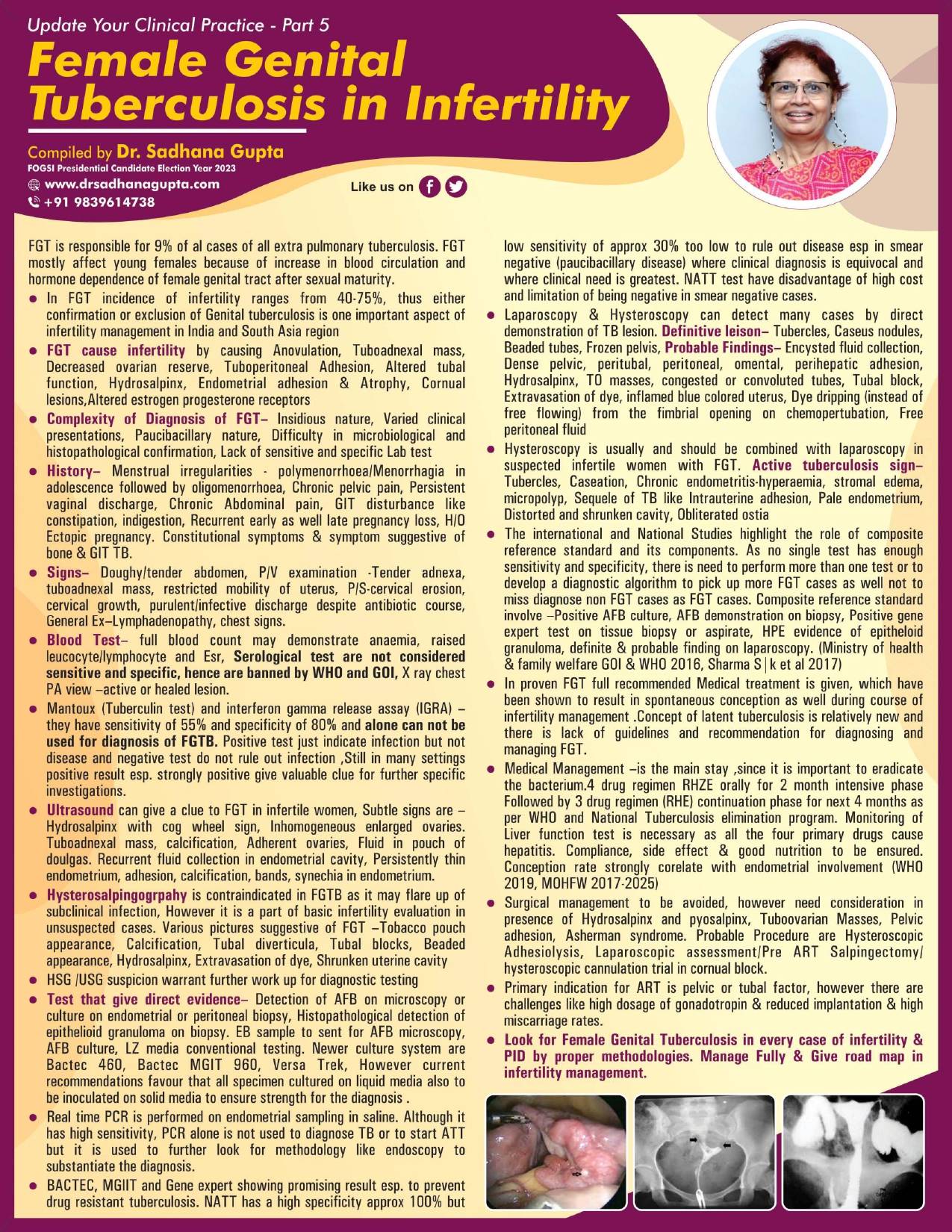Table of Contents
I. Introduction
Infertility can be a distressing condition for couples trying to conceive. While there are various causes of infertility, one often overlooked factor is female genital tuberculosis (FGTB). In this blog post, we will delve into the topic of FGTB and explore its impact on infertility.
Il. Understanding Female Genital Tuberculosis:
- Female genital tuberculosis is a form of tuberculosis that affects the female reproductive organs, including the fallopian tubes, uterus, and ovaries. It is primarily caused by the bacteria Mycobacterium tuberculosis.
III. How FGTB Leads to Infertility:
1. FGTB can have detrimental effects on fertility due to several reasons:
a. Tubal damage: FGTB can cause inflammation, scarring, and adhesions in the fallopian tubes, obstructing the movement of the egg from the ovary to the uterus. This obstruction hampers the chances of fertilization and implantation.
b. Endometrial involvement: The infection can lead to inflammation of the uterine lining, known as endometritis. This condition interferes with embryo implantation, making it difficult for pregnancy to occur.
c. Ovarian impact: FGTB can affect the ovaries, leading to reduced ovarian reserve and decreased egg quality. This further reduces the chances of successful fertilization.
b. Endometrial involvement: The infection can lead to inflammation of the uterine lining, known as endometritis. This condition interferes with embryo implantation, making it difficult for pregnancy to occur.
c. Ovarian impact: FGTB can affect the ovaries, leading to reduced ovarian reserve and decreased egg quality. This further reduces the chances of successful fertilization.
IV. Symptoms and Diagnosis:
Symptoms of FGTB can be nonspecific and often resemble other gynecological conditions. Some common symptoms include irregular menstrual cycles, pelvic pain, abnormal vaginal discharge, and unexplained weight loss. Diagnosing FGTB requires a high index of suspicion and may involve a combination of clinical evaluation, imaging studies, and microbiological tests.
v. Treatment:
The treatment of FGTB involves a combination of anti-tuberculosis medications. The duration of treatment is usually prolonged, often lasting several months. Adherence to the treatment regimen is crucial to ensure the complete eradication of the infection.
Importance of Awareness and Prevention:
Increasing awareness about FGTB is essential to promote early diagnosis and appropriate treatment. Preventive measures such as practicing safe sex, maintaining good hygiene, and getting regular check-ups can help reduce the risk of FGTB.
Conclusion
Female genital tuberculosis can significantly impact a woman’s fertility, causing difficulties in conceiving. Understanding the link between FGTB and infertility is crucial for early detection and appropriate treatment. If you suspect FGTB or are facing challenges in conceiving, it is important to consult with a healthcare professional who can guide you through the diagnostic and treatment process. Remember, early intervention can improve the chances of successful conception and parenthood.

